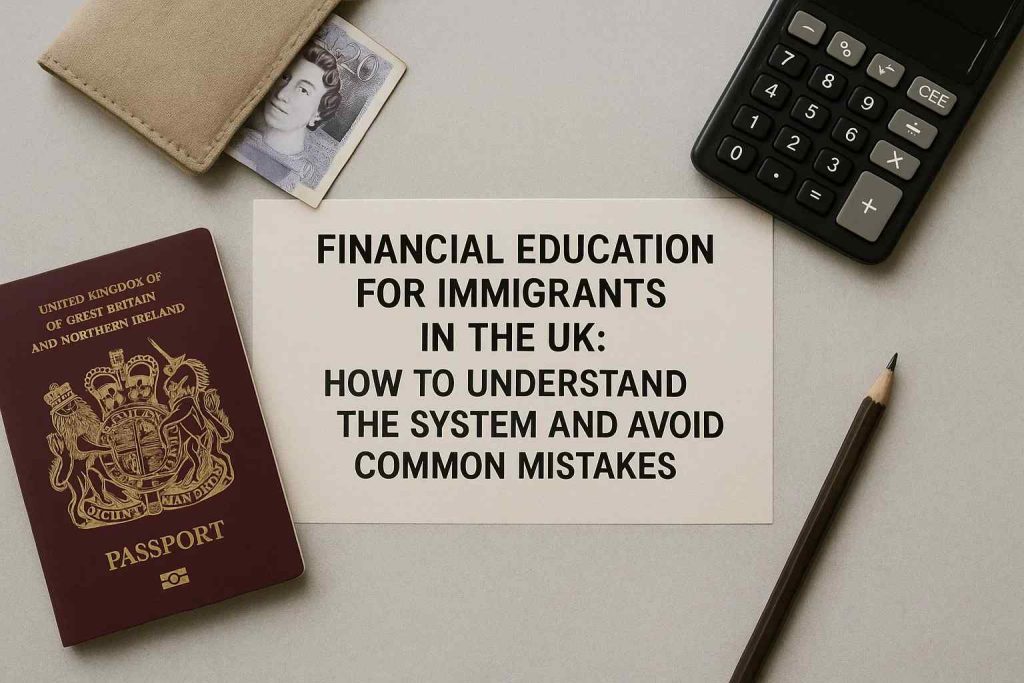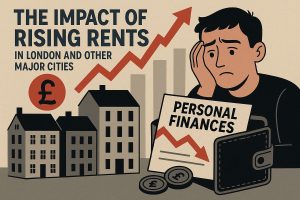Moving to a new country can be an exciting but also overwhelming experience, especially when it comes to managing personal finances. For immigrants arriving in the UK, navigating the banking system, understanding credit rules, and learning how to handle day-to-day money management can be challenging.
The UK has a financial system that may differ significantly from what immigrants are used to in their home countries. From setting up a current account to understanding the credit scoring system, every decision plays an important role in building a stable financial future. Immigrants often face unique barriers, such as language differences, unfamiliar legal requirements, and limited access to information.
Opening and managing a bank account

One of the first steps for any immigrant is opening a bank account. This can be more complicated than expected, since most UK banks require proof of address and identification, documents that newcomers may not yet have. Some banks offer basic accounts designed for individuals with limited documentation, which can be a good starting point.
Once the account is set up, it is important to understand how fees, overdraft facilities, and digital banking services work. Mismanaging an overdraft, for example, can lead to unnecessary charges and affect future credit applications. Learning how to use online banking, mobile apps, and standing orders can also make it easier to pay bills on time and stay organised.
Understanding credit and debt
Credit in the UK operates on a scoring system that influences everything from renting a flat to applying for a mobile phone contract. Many immigrants are surprised to discover that even with good credit history abroad, they may start from zero in the UK. Building a credit score requires consistent and responsible behaviour, such as paying bills promptly and using credit cards wisely.
Taking out too many loans or missing payments can quickly damage the score, making it harder to secure better financial products in the future. It is equally important to understand the risks of high-interest borrowing options, such as payday loans, which often trap people in cycles of debt.
Taxes and employment responsibilities
For those employed or self-employed in the UK, understanding the tax system is essential. The Pay As You Earn (PAYE) scheme automatically deducts income tax and national insurance contributions from salaries, but self-employed individuals must register with HM Revenue and Customs and file annual tax returns.
Mistakes with taxes can result in penalties and financial hardship. It is also important to know about tax-free allowances, pension contributions, and benefits that might be available. Accessing official resources or seeking advice from organisations like Citizens Advice can provide reliable guidance on managing tax responsibilities effectively.
Avoiding common financial mistakes
One of the most frequent mistakes immigrants make is relying on informal financial advice from friends or community groups without checking official sources. While personal experiences can be useful, each situation is unique, and regulations often change. Another common error is neglecting savings and emergency funds, which are essential for unexpected expenses such as medical emergencies or job loss.
Additionally, many immigrants underestimate the impact of currency exchange rates and international transfer fees when sending money back home. Choosing the right service and comparing costs can save a significant amount over time. Taking a cautious and informed approach helps avoid these pitfalls.
Planning for the future
Financial education is not just about avoiding mistakes; it is also about creating opportunities. Once immigrants establish themselves in the UK, long-term planning becomes crucial. Setting aside money for retirement, exploring investment options, and protecting income through insurance are all part of building financial resilience.
Understanding how pensions work, both private and workplace schemes, allows immigrants to secure stability in later life. Furthermore, learning about property ownership, mortgages, and inheritance laws can open pathways to greater financial independence. With patience and a commitment to continuous learning, immigrants can achieve both security and growth in their adopted country.





